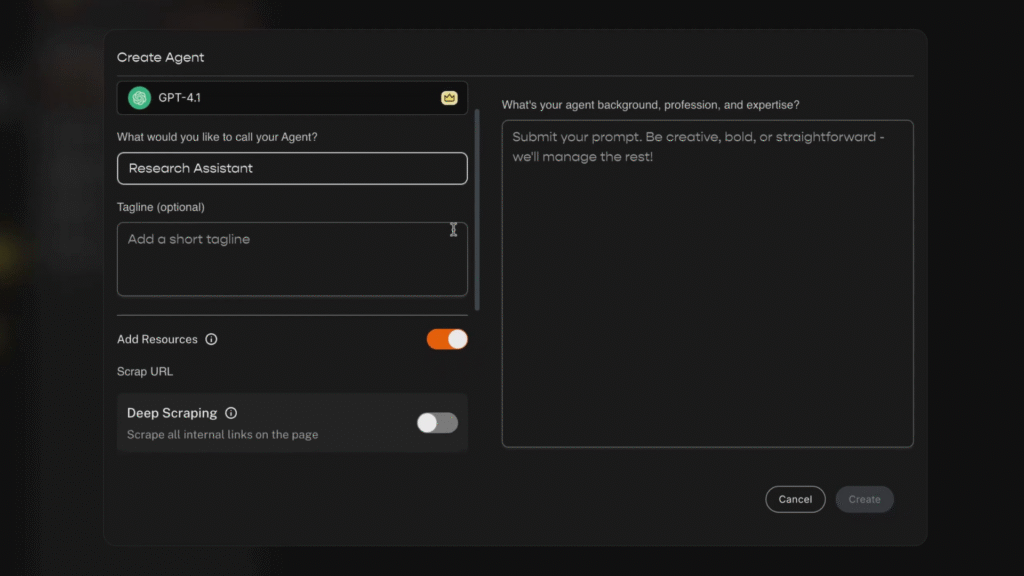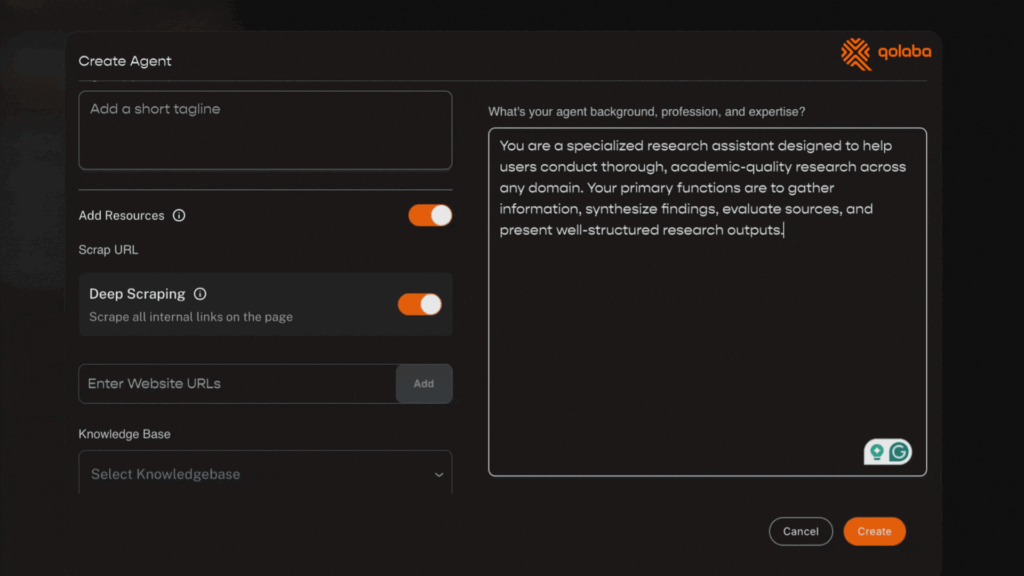The demand for custom AI agents has exploded across industries, with organizations seeking specialized AI solutions tailored to their unique workflows, data, and business requirements. The traditional divide between complex, code-heavy development and accessible no-code platforms has created two distinct paths for custom AI agent creation, each with strategic advantages depending on organizational needs, technical resources, and implementation timelines.
Understanding when to choose no-code versus code-based approaches for custom AI agent development can mean the difference between rapid deployment and months of complex development, between team-wide adoption and technical bottlenecks that limit organizational AI capabilities.
The Evolution of AI Agent Development
Custom AI agents have moved beyond simple chatbots to sophisticated systems that can analyze data, automate workflows, generate content, and integrate with existing business processes. The development approaches have evolved to serve different organizational needs, from rapid prototyping to enterprise-scale implementations.
Modern AI Agent Capabilities
- Multi-modal processing across text, image, video, and audio
- Complex workflow automation and decision-making
- Integration with existing business systems and databases
- Real-time learning and adaptation based on user interactions
- Advanced natural language understanding and generation
Code-Based AI Agent Development

Traditional programming approaches offer maximum customization and control over AI agent behavior, architecture, and integration capabilities. Code-based development appeals to organizations with specific technical requirements or unique use cases that demand custom solutions.
Advantages of Code-Based Approaches
- Unlimited Customization: Complete control over agent behavior, architecture, and user interface design
- Advanced Integration: Deep integration capabilities with existing systems, databases, and third-party services
- Performance Optimization: Fine-tuned performance for specific use cases and scaling requirements
- Proprietary Features: Development of unique capabilities that provide competitive advantages
Code-Based Development Challenges
- High Technical Barriers: Requires specialized AI/ML expertise, programming skills, and ongoing technical maintenance
- Extended Development Timelines: Complex projects can take months or years from conception to deployment
- Resource Intensity: Significant investment in developer time, infrastructure, and ongoing maintenance
- Limited Team Participation: Non-technical team members cannot contribute directly to development or iteration
When to Choose Code-Based Development
Organizations with unique technical requirements, specialized AI expertise, and long-term development roadmaps benefit most from code-based approaches. Industries requiring custom algorithms, proprietary data processing, or complex system integrations often necessitate traditional development methods.
No-Code AI Agent Development Revolution
No-code platforms have democratized AI agent creation, enabling business users, subject matter experts, and teams without programming experience to build sophisticated AI solutions tailored to their specific needs and workflows.
No-Code Development Advantages
- Rapid Deployment: Agents can be built and deployed in hours or days rather than months
- Team Accessibility: Anyone can contribute to agent development, refinement, and optimization
- Lower Cost Barriers: Eliminates need for specialized development resources and infrastructure
- Iterative Improvement: Easy modification and testing of agent behavior based on real-world performance
- Collaborative Development: Cross-functional teams can participate in agent creation and refinement
No-Code Platform Considerations
- Platform Dependencies: Agent capabilities limited by underlying platform features and integrations
- Customization Boundaries: May not support highly specialized or unique technical requirements
- Vendor Lock-In: Migration between platforms can be challenging depending on implementation approach
Comparative Analysis: Development Speed and Resources

Time-to-deployment represents one of the most significant differences between code-based and no-code approaches, with implications for business agility and competitive advantage.
Development Timeline Comparison
- Code-based agents: 3-18 months for complex implementations
- No-code agents: Hours to weeks for most business applications
Resource Requirements
- Code-based: Specialized developers, infrastructure, ongoing maintenance teams
- No-code: Business users, subject matter experts, minimal technical oversight
Cost Structure Analysis
- Code-based: High upfront development costs, ongoing maintenance expenses
- No-code: Subscription-based pricing, minimal maintenance overhead
Use Case Suitability Framework
Different business scenarios favor different development approaches based on complexity, customization requirements, and organizational capabilities.
Ideal Code-Based Use Cases
- Complex data processing requiring custom algorithms
- Integration with proprietary or legacy systems requiring custom APIs
- Industry-specific compliance requirements demanding specialized security measures
- Competitive differentiation through unique AI capabilities
Ideal No-Code Use Cases
- Content generation and marketing automation
- Customer service and support optimization
- Internal workflow automation and productivity enhancement
- Rapid prototyping and proof-of-concept development
Hybrid Development Strategies
Many organizations benefit from combined approaches that leverage no-code platforms for rapid development while maintaining code-based solutions for specialized requirements.
Hybrid Implementation Benefits
- Rapid deployment of core functionality through no-code platforms
- Custom integrations and specialized features through traditional development
- Team collaboration enabled through accessible no-code interfaces
- Technical flexibility maintained for complex requirements
Qolaba AI: Advanced No-Code Agent Development

Qolaba AI’s no-code platform transforms custom AI agent development by providing access to 60+ specialized AI models across text, image, video, and speech generation within an intuitive, collaborative interface. Teams can build sophisticated agents without programming knowledge while accessing cutting-edge AI capabilities typically reserved for code-based implementations.
The platform’s model-agnostic approach ensures agents leverage the best AI models for each task, while seamless API integration capabilities enable connection with existing business systems. The collaborative design allows entire teams to participate in agent development and refinement, while credit-based pricing eliminates the per-seat constraints that typically limit no-code platform adoption across organizations.
Making the Right Choice for Your Organization
Successful AI agent development requires honest assessment of organizational capabilities, timeline requirements, and long-term strategic objectives.
Decision Framework Considerations
- Technical expertise available within the organization
- Timeline requirements for deployment and iteration
- Budget constraints and resource allocation
- Integration complexity with existing systems
- Long-term maintenance and scaling plans
Organizations increasingly find that no-code platforms provide the optimal balance of capability, accessibility, and development speed for most business applications, while reserving code-based development for truly specialized requirements that demand custom solutions.
Ready to experience the power of no-code AI agent development? Explore Qolaba‘s advanced platform and build custom agents with access to 60+ AI models, seamless integrations, and collaborative development tools that transform how teams create intelligent automation.





